Selecting the right car batteries is crucial for vehicle performance and longevity. Choose between traditional 12V lead-acid batteries or modern electric technology for hybrid/electric vehicles. Consider climate, trip frequency, and electrical demands. Correct installation requires understanding positive and negative terminals. Follow steps like researching reputable shops, checking reviews, and selecting tailored batteries with warranties. Regular maintenance prevents breakdowns, enhances fuel efficiency, and catches wear early. Troubleshoot simple issues like loose connections before replacing the battery.
Need a reliable car battery installer? Understanding your options is key. This comprehensive guide helps you navigate the process, from selecting the right car batteries based on type and requirements to locating trusted installers near you. We’ll walk you through factors to consider, benefits of regular maintenance, and even troubleshooting common issues at home. Make informed decisions with these essential insights on how to select car batteries effectively.
- Understanding Car Battery Types and Requirements
- Locating Reliable Car Battery Installers Near You
- Factors to Consider When Selecting Car Batteries
- Benefits of Regular Battery Maintenance and Replacement
- Troubleshooting Common Car Battery Issues at Home
Understanding Car Battery Types and Requirements
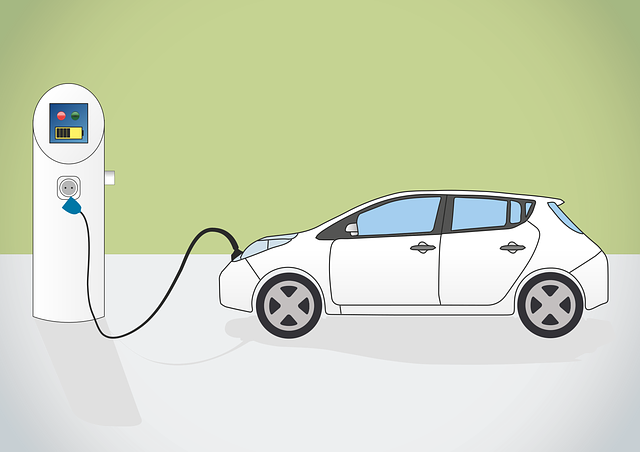
When it comes to selecting car batteries, understanding the various types and their requirements is key. There are two primary categories: 12-volt lead-acid batteries, which are traditional and widely used, and electric car battery technology, a more modern option for hybrid and electric vehicles. Each has distinct characteristics; lead-acids are affordable and reliable but heavier, while electric car batteries offer lighter weight and enhanced performance, though they come at a higher price point.
Knowing the specific needs of your vehicle is crucial. Factors like cold climate, frequent short trips, and high electrical demands impact battery life. Additionally, understanding car battery terminals is essential for proper installation. These terminals, often marked positive (+) and negative (-), facilitate the connection between the battery and the electrical system, ensuring smooth power distribution. Opting for a suitable battery that aligns with your vehicle’s requirements and features clear terminal identification will contribute to optimal performance and longevity.
Locating Reliable Car Battery Installers Near You
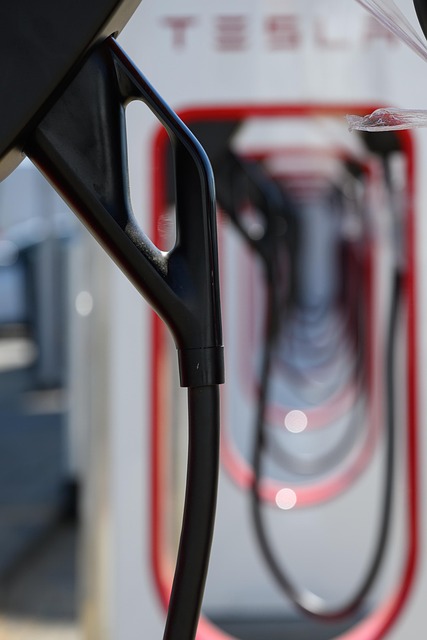
When it comes to reliable car battery installers near you, there are a few key steps to take. Start by seeking out reputable shops or mechanics that offer specialized services for vehicle electrical systems. Online reviews and ratings can be invaluable resources in identifying professionals with proven track records and high-quality work. Many installations also come with warranties, so ensure the provider offers comprehensive coverage to protect your investment.
Consider your specific needs when selecting a battery. Refer to a car battery size guide to determine the right fit for your vehicle. Moreover, understand the distinction between deep cycle and starting batteries, as they serve different purposes. Even explore the benefits of solar-powered car batteries if sustainability is a priority. By taking these factors into account, you’ll be well on your way to securing a reliable installation that keeps your vehicle running smoothly.
Factors to Consider When Selecting Car Batteries
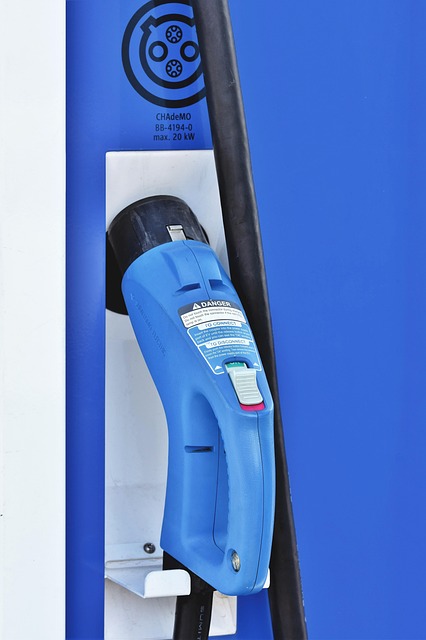
When selecting a car battery, several key factors come into play. First and foremost, consider the climate in which you live. Extreme temperatures can significantly affect battery performance, so choose a battery designed for your region’s conditions. Secondly, evaluate your driving habits; high mileage or frequent start-stop cycles may require a battery with higher cold cranking amps (CCA).
Additionally, look into premium car battery brands known for their quality and reliability. These brands often offer advanced features like enhanced corrosion resistance and improved electrical conductivity. Energy-efficient models are also worth considering, as they can provide the same performance while reducing energy consumption and prolonging the overall lifespan of your vehicle’s electrical system. Remember to pair your chosen battery with a suitable car battery charging system for optimal maintenance.
Benefits of Regular Battery Maintenance and Replacement
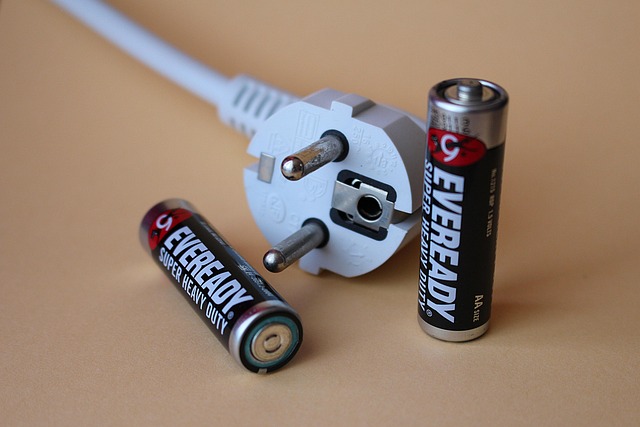
Regular battery maintenance is an essential part of vehicle care that many drivers overlook. By keeping your car’s battery in top condition, you can avoid unexpected breakdowns and ensure your engine starts smoothly every time. A well-maintained battery also contributes to better fuel efficiency, as it aids in the overall electrical system’s optimal performance. This is especially true for those who drive in extreme weather conditions or engage in frequent off-road adventures; a robust, high-performance car battery can be a game-changer in such scenarios.
Replacement is another critical aspect that cannot be ignored. Over time, batteries weaken and lose their capacity to hold a charge effectively. This is where selecting the right car battery becomes crucial. Smart car battery management practices include staying informed about the specific requirements of your vehicle and opting for top-quality replacements, whether it’s a standard or high-performance model. Regular checks can help you identify any signs of wear and tear early on, ensuring timely replacement for uninterrupted driving experiences.
Troubleshooting Common Car Battery Issues at Home
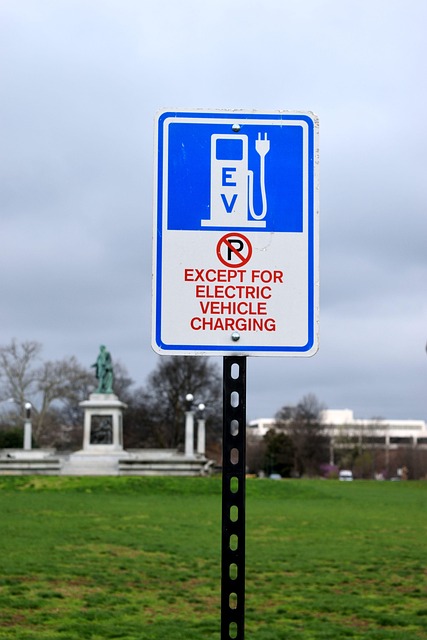
Many car battery issues can be resolved right at home before you even need to consider visiting a professional installer. If your car struggles to start or doesn’t turn over at all, it could be as simple as a faulty connection. Double-check that all cable connections are secure and clean; corrosion can prevent a proper connection, so gently scrubbing the terminals with a wire brush can help restore power. Additionally, check if there’s any damage or leaks from the battery itself; these signs may indicate a need for replacement.
When assessing your car’s battery health, consider factors like age and usage. New vs. used batteries have different characteristics: new batteries often come with a warranty and offer peak performance, while used batteries might still have life left but generally provide less power. Premium car battery brands are known for their quality and durability, so investing in one could prevent future issues. For optimal smart car battery management, regular checks and maintenance are key; this includes keeping the battery charged at an ideal level (typically between 12.6 and 12.8 volts) to ensure longevity.
When it comes to keeping your vehicle’s electrical system running smoothly, selecting the right car batteries and ensuring proper installation is key. By understanding different battery types, locating reputable installers near you, and considering vital factors during selection, you can make informed choices that enhance your driving experience. Regular maintenance and prompt troubleshooting of common issues will further extend the life of your car battery, ensuring reliable performance on the road. Remember, a well-maintained battery is essential for a smooth and stress-free drive.
